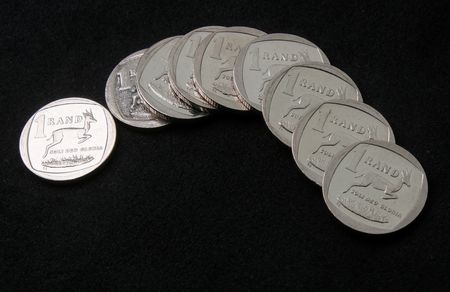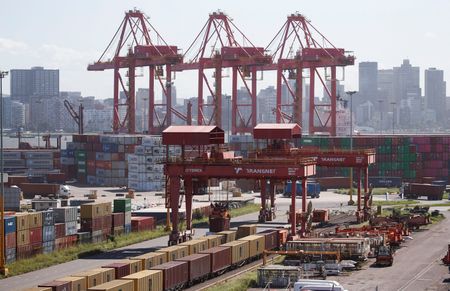JOHANNESBURG, August 1 (Reuters) -The South African rand gained against a softer dollar after the United States reported weaker-than-expected jobs data, but stocks on the local bourse fell sharply as traders mulled the impact of higher tariffs on the country after it failed to clinch a trade agreement with Washington.
At 1604 GMT, the rand traded at 18.0350 against the dollar, about 1% firmer than its previous close and paring losses after dropping to an over two-month low in early trade.
The dollar last traded more than 1% weaker against a basket of currencies.
South Africa’s rand, like other risk-sensitive currencies, often takes cues from global drivers such as U.S. policy and economic data.
The Johannesburg Stock Exchange’s Top-40 index closed down 0.7% and the wider All-Share index dipped 0.8%.
In an executive order on Thursday, U.S. President Donald Trump modified tariff rates for some countries, but South Africa’s figure was kept at 30%, as he seeks to reshape global trade on more favourable terms for the United States.
The order said the higher duty rates would take effect in seven days.
A seasonally-adjusted purchasing managers’ index earlier showed that South African manufacturing sentiment improved in July, pointing to better business conditions in the sector for the first time in nine months.
Separately, data from the national auto association NAAMSA showed a 15.6% year-on-year increase in new vehicles sold domestically in July.
South Africa’s benchmark 2035 government bond was stronger, as the yield fell 3 basis points to 9.595%.
The country’s government borrowing costs dropped to their lowest in five years after the Reserve Bank said on Thursday it would lower its inflation goal, despite the finance minister not yet having signed off on a formal change of target.
(Reporting by Sfundo Parakozov; Editing by Clarence Fernandez, Rod Nickel)










